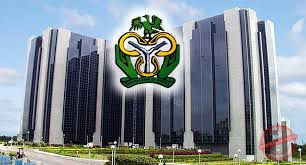ARTICLES
Loan Apps Overcharging You? Here’s the CBN Rule You Should Know
Loan Apps Overcharging You? Here’s the CBN Rule You Should Know

Are you currently owing a loan app, bank, or microfinance institution in Nigeria? You might have noticed how quickly the charges keep piling up. Some borrowers even get scared into paying outrageous penalties because they don’t know what the law actually says.
But here’s the fact: according to the Central Bank of Nigeria (CBN), loan defaults should not attract more than 1% increase in interest or penalty charges per month. If any lender tries to add more than that, you are not legally bound to pay.
This is not just a rumor—financial experts and legal advisers have confirmed that borrowers are protected under this rule.
What This Means for Borrowers
Many loan apps and lenders take advantage of desperate borrowers by slamming them with ridiculous overdue charges—sometimes 10% or even 20% within a single month. This is against CBN guidelines.
If your loan is overdue, the maximum extra charge allowed is 1% per month. For example:
- If your monthly repayment is ₦20,000, the maximum penalty charge should not exceed ₦200.
- If it’s ₦50,000, the penalty should not exceed ₦500 in that month.
Anything beyond this is illegal and can be challenged.
Why Lenders Break This Rule
Many digital loan companies are not properly regulated or intentionally ignore CBN’s policies. They thrive on fear tactics—threat calls, messages to your contacts, and overbilling borrowers with fake charges.
Unfortunately, because most borrowers are unaware of their rights, they end up paying far more than they should.
What You Should Do If Overcharged
If a loan company tries to make you pay penalties higher than 1% per month, here are steps you can take:
- Document everything – keep receipts, SMS alerts, and app screenshots.
- Reach out to the lender in writing – remind them of CBN’s 1% rule.
- Report to CBN – you can file a complaint through their Consumer Protection Department.
- Seek legal advice – lawyers who specialize in consumer rights can defend you if harassment continues.
Debt can be stressful, but knowledge is power. CBN’s rule is clear: loan defaults must not attract more than a 1% monthly increase in charges. If lenders go beyond this, don’t let fear push you into paying illegally inflated debts. Stand your ground and use the law to protect yourself.
Discover more from 9jaPolyTv
Subscribe to get the latest posts sent to your email.

 RELATIONSHIP23 hours ago
RELATIONSHIP23 hours ago13 Warning Signs He’s Only After Sex (Don’t Fall for a Chop and Go Man)

 EDUCATION21 hours ago
EDUCATION21 hours agoInter-University Transfer Process in Nigeria: Step-by-Step Guide for Students

 ARTICLES22 hours ago
ARTICLES22 hours agoWill FlexiCash in PalmPay Clear My Loan If I Only Pay the Principal? A Must Read

 EDUCATION21 hours ago
EDUCATION21 hours agoTransfer Admission Requirements: How to Qualify for a New University

 EDUCATION21 hours ago
EDUCATION21 hours agoHow to Transfer From One University to Another in Nigeria Without Losing a Year

 EDUCATION21 hours ago
EDUCATION21 hours agoBest Universities in Nigeria for Transfer Students

 EDUCATION21 hours ago
EDUCATION21 hours agoUniversity Credit Transfer: How to Move Your Courses Without Starting Over

 ARTICLES20 hours ago
ARTICLES20 hours agoWhat Happens After You Default? FlexiCash vs EasiMoni vs Okash Compared
































